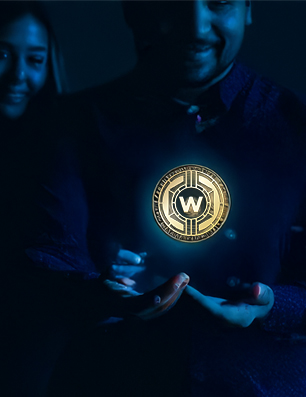- Written by: Prima Jenkins
- Sun, 13 Feb 2022
- Russian Federation
Web3 is here, and ENS is leading the way to provide name standard domain on ETH. Check out our “What Is Ethereum Name Service?” to learn more. Covered: What Is Ethereum Name Service? ENS vs. DNS Partners & Team Tokenomics What Is Ethereum Name Service? Whether one likes it or not, Web3 is here. Businesses […] The post What Is Ethereum Name Service? appeared first on CryptosRus.
What Is Ethereum Name Service?
Web3 is here, and ENS is leading the way to provide name standard domain on ETH. Check out our “What Is Ethereum Name Service?” to learn more.
Covered:
- What Is Ethereum Name Service?
- ENS vs. DNS
- Partners & Team
- Tokenomics
What Is Ethereum Name Service?
Whether one likes it or not, Web3 is here. Businesses and individuals are looking for domains to claim their place on Web3. Launched in 2017, the Ethereum Name Service (ENS) is currently the most extensively used blockchain name standard domain. Like the Internet’s Domain Name Service (DNS), ENS provides an Ethereum blockchain version of Web3 address. It is already used by notable projects like Coinbase, Uniswap, OpenSea, and MetaMask Extension.
ENS’s native name suffix is .eth. However, users can also use DNS names they already owned, such as .com or .org. Furthermore, ENS is only limited to Ethereum blockchain technology capacity. Meaning, it can be used to hold multiple addresses under a single name, build dApps, and receive digital assets such as cryptocurrencies and NFTs. Additionally, because of blockchain technology, once the content is created on the ENS, it can not be deleted, allowing users to create censorship-resistant websites. The immutability aspect makes it exciting for the decentralized movement and community.
welcome @VitalikButerin to the ENS avatar club! ?? pic.twitter.com/aQwzt5AAPi
— brantly.eth (@BrantlyMillegan) January 11, 2022
RECOMMENDED: POLYGON INTEGRATING WITH OPERA BROWSER TO ACCELERATE WEB3 ADOPTION
ENS vs. DNS
Unlike its competitors, ENS does not intend to replace the internet’s traditional DNS. Instead, its only intention is to provide a trustworthy and distributed name resolution for Web3.
Similarities:
- ENS is essentially Web3 version of Web2’s DNS
- It uses the dot-separated hierarchical “domain name” mechanism
Differences:
- It is decentralized
- Immutable (censorship-resistant)
- Able to receive digital assets
- ENS owners can create subdomains. For example, “George.eth” can create a subdomain for a wallet as “pay.George.eth”
.CASH, .MONEY… Cryptocurrency wallet addresses just became fun https://t.co/tyowYFy2MT
— Namecheap.com (@Namecheap) January 5, 2022
RECOMMENDED: Ernst &Young Says Ethereum Is Driving Crypto Innovation, Not Bitcoin
Partners & Team
ENS started at the Ethereum Foundation before breaking off in 2018 to create a separate organization. Currently, ENS is managed by True Names Ltd, a Singaporean non-profit company. Because of this, ENS has no investors. However, they have received financial support from the Ethereum Foundation, Binance_X, Ethereum Classic Labs, Chainlink, and Protocol Labs.
ENS has multiple partners such as Coinbase, Rainbow, Uniswap, Brave, Opera, MetaMask, and Cloudflare, to name a few. As mentioned above, they currently support many popular wallets, browsers, apps, and dApps.
With that said, it is not surprising that the team is highly experienced. Nick Johnson is the creator and lead developer with more than 20 years of experience in the field. He started ENS while working as a Software Engineer at the Ethereum Foundation. The majority of the developers on the team have more than ten years of experience in the field.
Tokenomics
The ENS token is a governance token for the Ethereum Name Service. It was launched in November 2021 and airdropped to users who got their ENS domains before October 31st, 2021. Users who got their ENS domain after may still claim their ENS token before May 4th, 2022.
The team created the token because they “believe that both ENS and the DAO space have matured enough that now is the time to pass ENS Governance over to the community via the creation of a DAO and the $ENS Governance Token.”
Token Distribution:
There are 100 million tokens in total, and the distribution is as follows:
- 50% to the DAO community treasury
- 25% airdrop to ENS domain holders
- 25% to ENS contributors
$ENS has launched!
Eligible users can claim their $ENS governance tokens at: https://t.co/ZGGfGLhdhS
No rush: You have until *May 4, 2022* to claim your tokens. Claiming costs gas, so feel free to wait for favorable gas prices.https://t.co/TuheiI0w9i
Blog or ?? for more??
1/— ens.eth (@ensdomains) November 9, 2021
RECOMMENDED: HEDGE FUND: HALF THE WORLD’S TRANSACTIONS WILL BE ON ETHEREUM
Concerns:
The immutability aspect of ENS sounds like heaven to the decentralized world. However, it also brings the fear of malicious actors having a censor-free expression floor. Again, though, one might argue that it’s the price to pay for decentralization. ENS is already widely adopted by well-known blockchain projects. However, as the name suggests, ENS is limited to the Ethereum blockchain. The blockchain space is still too young to determine that Ethereum will be the widely chosen blockchain for Web 3.0. ENS will have to adapt fast if the tide turns to a different blockchain.
Where To Buy ENS?
You can purchase ENS through KuCoin exchange, similar to how you would buy another cryptocurrency. You can either place a market buy or a limit buy. With a limit buy, you determine the price you are willing to pay, and your order gets filled once the token price reaches your limit price. If you want to get your hands on the token quickly, you can place a market order, where you agree to pay the current price and have your order filled almost immediately. If you are interested in purchasing ENS, you can do so by visiting KuCoin, Gate.io, or Binance.US.
The post What Is Ethereum Name Service? appeared first on CryptosRus.






